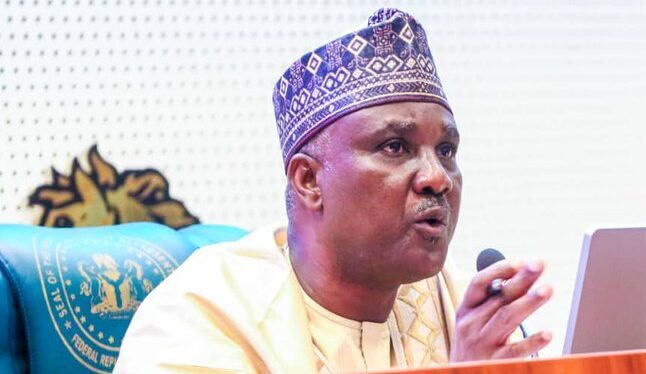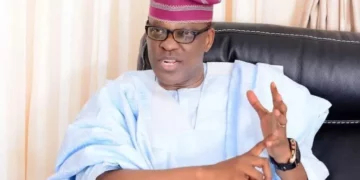The Speaker of the House of Representatives, Hon. Tajudeen Abbas, has said the legislature owes Nigerian workers the obligation to protect and ensure their safety at the workplace through appropriate legislation.
Abbas said this in Abuja at a conference organised by the House Committee on Safety Standards, ‘The Legislative Perspective: Safety First, Building a Safer Future for All Nigerians’.
He said the House is determined to review and streamline existing laws to make them more effective in safeguarding public health and safety.
“For those of us in the Parliament, we owe Nigerian workers the obligation to protect and ensure their safety at the workplace through appropriate legislation.
“In our oversight functions, we must ensure that extant laws are respected. Perhaps this theme is tied to the legislative perspective of safety and the future,” Abbas said.
He expressed worry that data on the workplace injuries and fatalities suffered by Nigerians might not be reliable due to a lack of comprehensive documentation. He said that many regard data as reports from some organisations with high risk exposure, like the petroleum and mining sectors.
“Even at that, the data is neither comprehensive nor reliable. The last time such data was recorded was between 1994 and 2001. An online report quoting from the ILO source only showed that the most recent fatalities were 238 fatalities and 3461 injuries in the construction industry between 2014 and 2016,” Abbas said.
According to him, a recent study of health sector injuries conducted at the Federal Medical Centre in Asaba, showed that out of 167 health workers, comprising seven doctors, 100 nurses and 20 laboratory workers, a total of 88, about 52.7 per cent reported experiencing needle pricks, while 89, representing 53.3 per cent reported blood splash incidents.
“While this may not seem to constitute a serious workplace injury, the enormity of the hazard health workers face comes to reality in the face of outbreaks like Ebola, COVID-19, and HIV, and other such transmissible diseases. Recall that Dr. Amevo Adadevoh and Justina Ejelonu, a nurse, lost their lives in August 2014 after contact with an Ebola patient whom they prevented from leaving the hospital.
“Also, many construction workers have become victims of workplace injuries, both fatal and non-fatal. In some cases, some workers have become permanently disfigured from injuries sustained at the workplace. The causes of workplace injuries in construction sites have been linked to unsafe acts and unsafe working conditions, including a lack of personal protective equipment (PPE), rain gear, hoisting equipment, appropriate scaffolds, and ladder protections. These, among many others, expose workers to hazards and accidents.
“As the constitutionally empowered law-making body in the country, the House of Representatives is poised to cause the necessary review of existing laws and seek ways to streamline and make them more effective in safeguarding public health and safety. It is our commitment as the 10th House of Representatives to prioritise the interests of the Nigerian people in the lawmaking process.
“To this end, we shall do all that is legislatively permissible, as captured in our ‘Legislative Agenda, to engage with members of the public through our open and inclusive legislative process, and harness views and suggestions on the best ways to make the existing laws more effective in addressing noncompliance questions to public safety’ and health, especially, in public buildings,” the speaker added.
For his part, the Minister of Labour and Employment, Dr Muhammadu Dingyadi, said the journey towards safer and healthier workplaces in Nigeria demands that all hands be on deck, across the executive and legislative arms of government, all facets of the public and private sectors, civil society, and even the press.
“The National Occupational Safety and Health Management system requires a harmonised approach, rooted in the principles of tripartism — where government, employers, and workers’ organisations collaborate as equal partners.
“Together, let us rise to the challenge of building a resilient safety culture, underpinned by Innovation, inclusivity, and a shared commitment to protecting the lives of all Nigerian workers,” he said.
Also speaking, the committee’s chairman, Hon. David Zacharias, said the panel, which serves as a legislative body that establishes, monitors, and enforces safety laws and regulations, is working to address the current gaps in the country’s safety systems and anticipate future safety needs.
“Today is not just about discussing problems—it is about forging solutions. It is about recognising the challenges, understanding their root causes, and developing sustainable and collaborative approaches that will lead to tangible progress in safety standards,” he said.





